
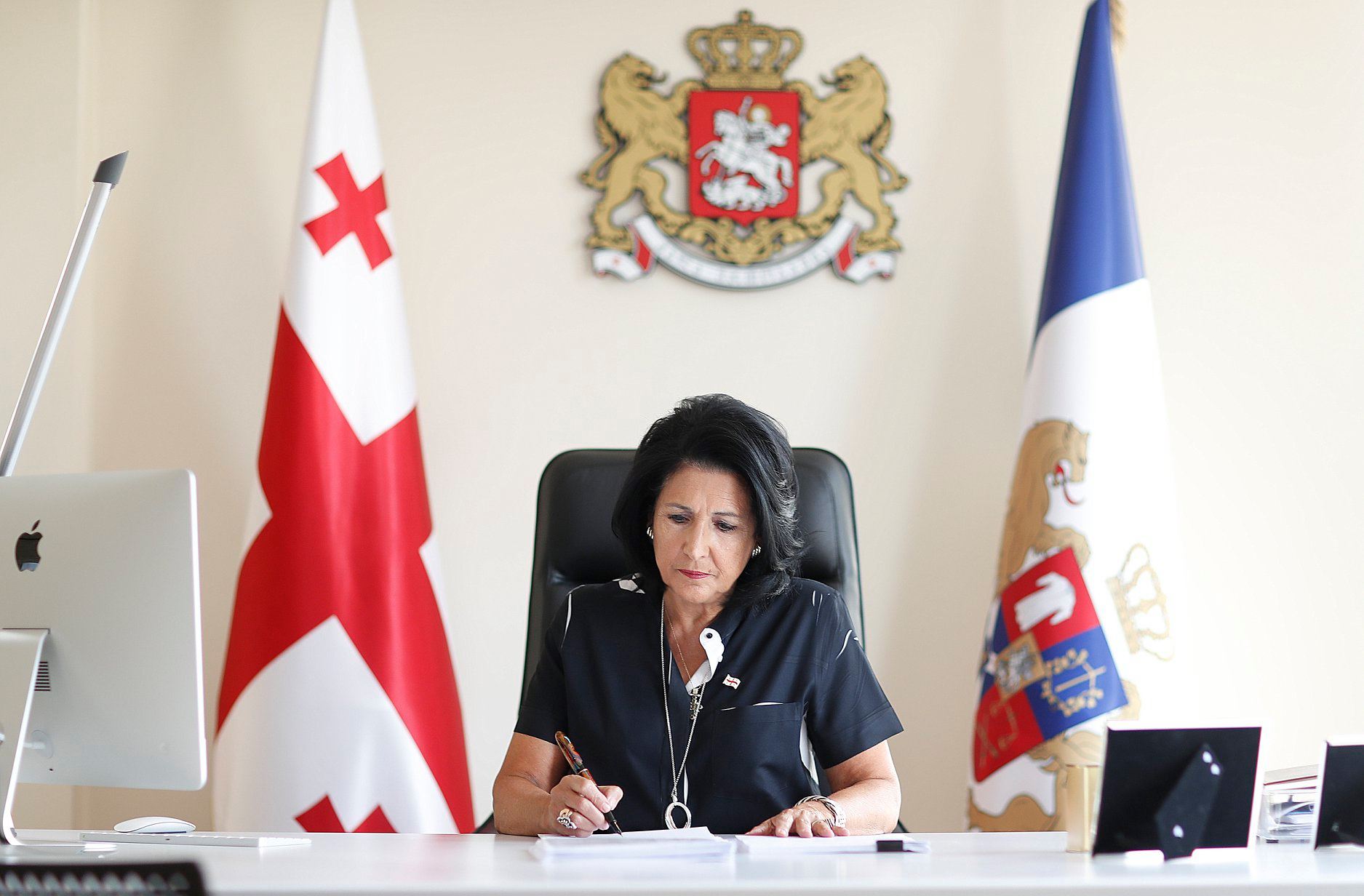
Salome Zurabishvili has been elected the 5th president of Georgia in 28 November’s presidential runoff, winning 60% of votes according to preliminary results. Her win is historic, given that she is the first woman to run and succeed in the marathon for the presidential seat. Constantly emphasising her European origins, she has promised to help Georgia integrate into NATO and the EU and as she likes to say, ‘bring Georgian society together’.
Her victory did not come as a surprise to most Georgians: she had around ₾10 million ($3.7 million) at her campaign’s disposal, about three times that of her main rival, and most importantly the backing of the ruling Georgian Dream party. But Zurabishvili’s victory was not without its controversies, including her lack of knowledge of Georgian language, xenophobic comments, suggesting Georgia started the 2008 war, and more.
Zurabishvili, technically an independent candidate, has pledged not to be influenced by the ruling party despite not manifesting any resistance towards Georgian Dream in her time in parliament or prior to that.
Who is Zurabishvili and why did Georgian Dream support her?
Salome Zurabishvili is a 66 years old French-born diplomat born to Georgian emigres in Paris.
She boasts an impressive CV, working in the French diplomatic service representing France at the UN, as First Secretary of the French Embassy to Washington, OSCE Representative to Austria, French Envoy to Chad, France’s representative to NATO and the now-defunct Western European Union alliance, and finally, as French ambassador to Georgia.
From 2004–2005, Zurabishvili served as Georgia’s Minister of Foreign Affairs. She speaks proudly of her role during this time as lead negotiator on the 2005 deal on the withdrawal of Russian military bases from Georgia.
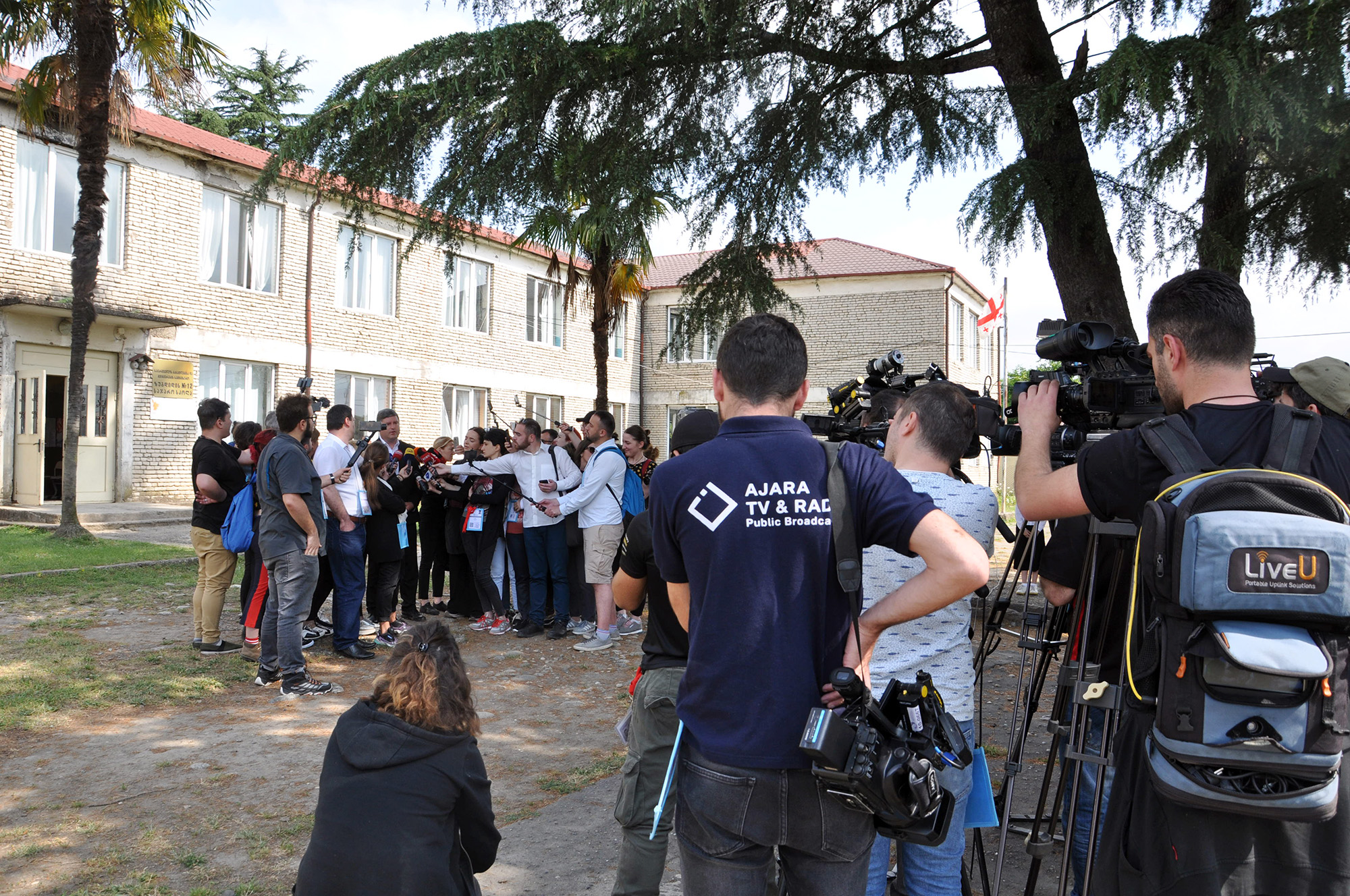
After a fallout with the then–ruling United National Movement party, she was fired by then-president Mikheil Saakashvili. She then went into opposition, as one of the leaders of an anti-government movement rallying in streets, before retiring from Georgian politics shortly thereafter.
Zurabishvili made a political comeback in 2016, running in Georgian Parliamentary elections as an independent candidate. Despite not being officially affiliated with Georgian Dream, the ruling party expressed their full support for her and did not stand against her in Tbilisi’s Mtatsminda District, paving the way for her entrance into Parliament.
During her time as an independent MP, she did not show any major opposition to the ruling party’s policies and initiatives.
A controversial campaign — who started the 2008 war?
In August, Zurabishvili announced she was running for president as an independent candidate. She made two announcements in her self-nomination speech: one, that as a woman, she may prove superior in terms of being a more peaceful negotiator compared to her male peers. Secondly, she said she wanted the country to have a ‘European campaign’, which wouldn’t be based on rivals berating each other.
The controversies began as soon as she was asked by journalists whether she maintained her previously stated stance on who started the August 2008 war.
‘Russia started the war a century ago. We were tricked by a Russian provocation and Georgia started this part of the war situation. This is a very well-known version also confirmed by the EU’, said Zurabishvili.
Despite her comments triggering a widely negative response from voters, Zurabishvili stuck to her guns, reiterating her stance on the war several times during the campaign.
On 8 August, the 10th anniversary of the outbreak of war, she went to the Mukhatgverdi Brotherhood Cemetery to commemorate those killed in the war, but still blamed Georgian authorities for their attack on Tskhinvali, in South Ossetia.
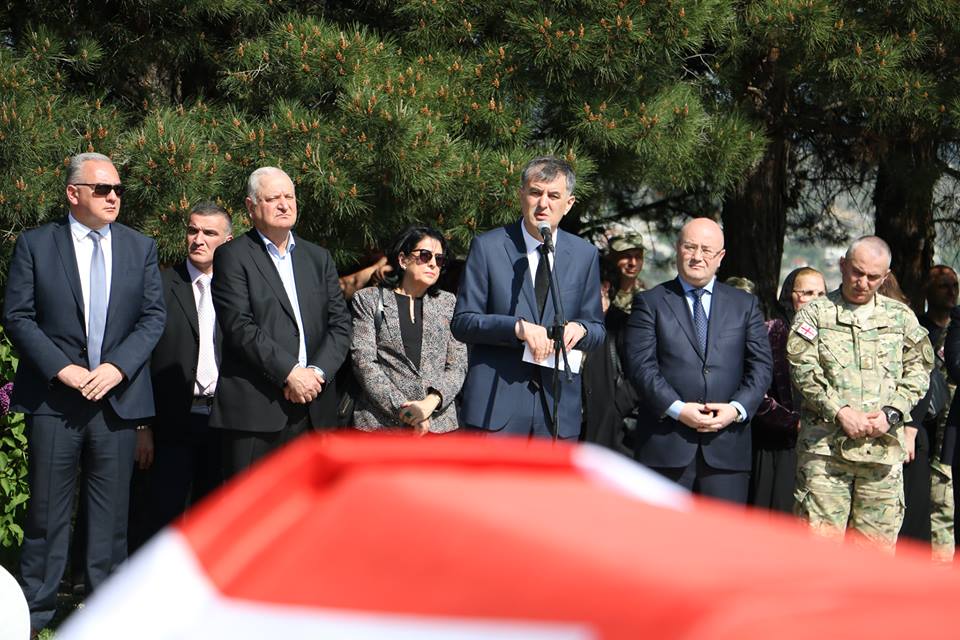
‘How should we qualify developments where Georgia started military operations when it didn’t have any advantage, when Georgia was warned by all of its partners not to make a military move because there wouldn’t be any help?’
‘What would you call launching massive strikes against your own population when you don’t have any hope for help, have no advantage or the element of surprise in your favour? Is it the caprice of a witless, crazy president or a strange arrangement with our century-old enemy?’, said Zurabishvili.
The ruling Georgian Dream party had said they wouldn’t nominate their own candidate in the elections ‘for the good of democracy’, and would give way to opposition and independent candidates. They said they were planning to support an independent candidate.
Despite it being clear already the party would embrace Zurabishvili as their favoured candidate the day she announced she was running, Georgian Dream seemed somewhat reluctant to make the move given the backlash Zurabishvili’s comments on the war had triggered. They announced their support for her after lengthy internal consultations and finally said they somewhat agreed with Zurabishvili that ‘Russia started the war but the Georgian government had been tricked by a Russian provocation’.
Zurabishvili avoided directly answering questions over her views on the war after this, and her ambiguous statements were met by young Georgian activists protesting, calling her a traitor.
Finally, realising that her stance was not favourable for the campaign, Zurabishvili again clarified on 17 September, the day she opened her election headquarters in Tbilisi. She said directly that Russia had started the war.
‘Russia is an aggressor and an occupier. I can repeat this endlessly.’
‘As for who started the war — of course, Russia did, and this is why: Russia invaded territory it recognised [as sovereign] with tanks and military planes and not vice-versa.’
‘This is so elementary, it’s not questionable. I have never questioned this. When I say that the Georgian government was tricked by a provocation, I don’t mean that Georgia is guilty. I say that the president [Mikheil Saakashvili] made a huge mistake and the government committed a huge crime, the consequences of which we live with’, said Zurabishvili.
However, her comments regarding the war has already done some damage: a year after Georgia filed a case against Russia in the International Court of Justice accusing Russia of ethnic cleansing and occupying Georgia’s territories, in 2009 Russia responded with an appeal accusing Georgia of genocide, using Zurabishvili’s quotes from her book ‘La tragédie géorgienne 2003-2008’ (The Georgian Tragedy 2003–2008) to strengthen their argument.
Poor knowledge of Georgian language and controversial statements
Born and raised in France, Zurabishvili has struggled to express herself eloquently in Georgian. Over the course of her campaign, she has made several gaffes, for example, saying: ‘I’m not a Catholic, I am an Orthoslim’, a combination of Orthodox and Muslim, ‘Wherever you dig, you can dig everywhere’, ‘This is the very question anal-lists and journalists must be asking’ and more.
She has also been criticised for xenophobia.
A 2013 post from her Facebook shows her saying ‘chinese migration is the most alarming as it has its own specifics: Chinese people don’t die. Several people use the same ID or passport and who can distinguish them? When you think 10 people have arrived, in reality, 100 have. Can you imagine from the 126,000 who have arrived, how many they could have become?’ wrote Zurabishvili.
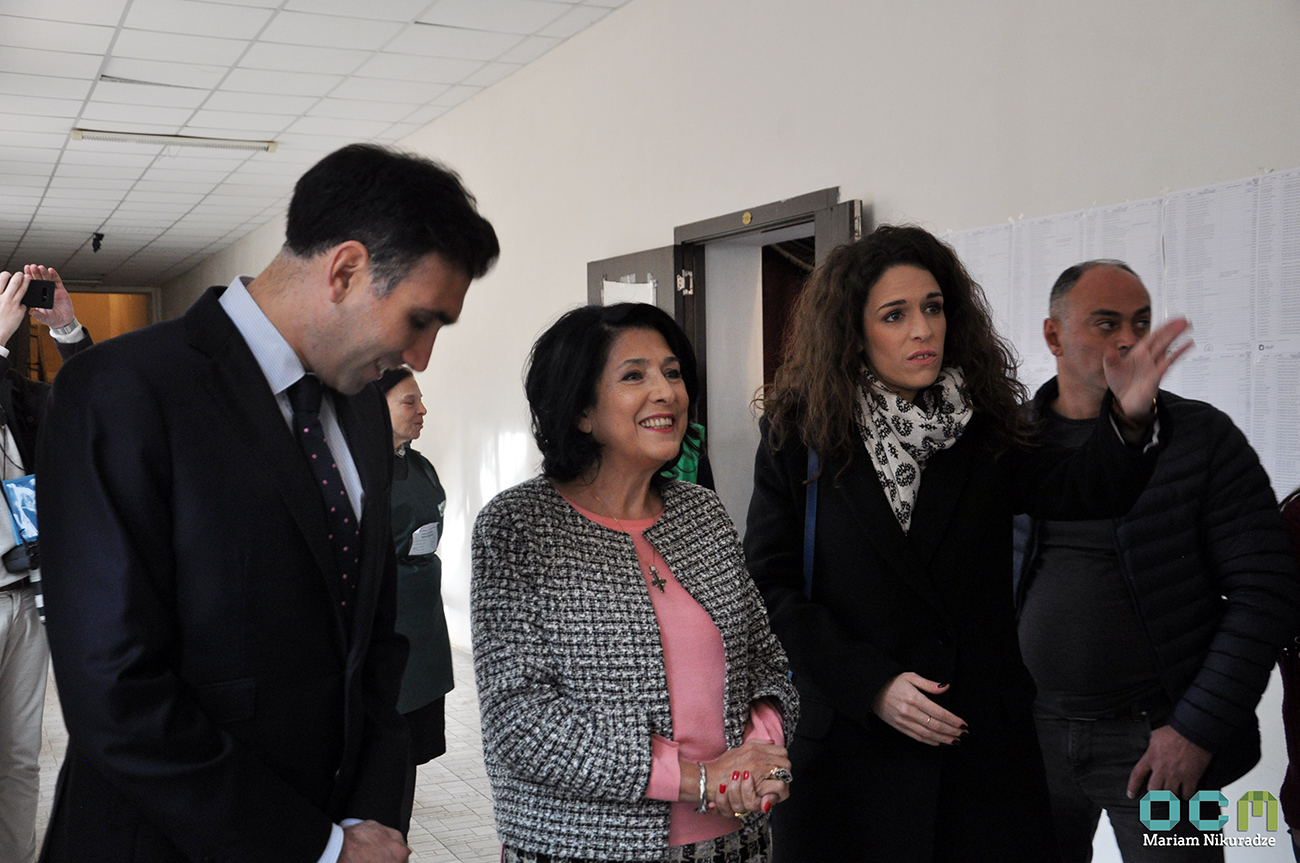
She also made headlines with another xenophobic comment during a campaign meeting with ethnic Armenians at Ninotsminda, a town in the southern region of Samtskhe-Javakheti.
‘One president [Saakashvili] handed out citizenship to numerous Turks, but didn’t give it to you’, said Zurabishvili.
After receiving criticism for her words from rights groups, Zurabishvili fired back, saying NGO’s come to the aid of women candidates all over the world, while in Georgia she is accused of racism.
Other Georgian Dream members took up the narrative that she was being attacked for being a woman but struggled to show how attacks against her were motivated by her gender.
In fact, Zurabishvili didn’t show up to any of the events inviting presidential candidates to discuss women’s rights, for which she was harshly criticised by women’s rights groups.
Independent [Georgian Dream’s] candidate
It is hard to say what made Zurabishvili an independent candidate and not Georgian Dream’s candidate. Technically she was independent, given that voting ballots didn’t have Georgian Dream written along her name. In practice, Georgian Dream put as much effort into her win as they would for their own candidate.
On 6 August, Georgian Dream announced they wouldn’t name a candidate of their own, but support an independent. They said Georgia needed an impartial president who stays above party conflicts.
‘In case a party candidate wins, the president will find it hard to maintain political neutrality and fulfil its functions duly obliged on them under the constitution. It is even more undesirable to have a Georgian Dream party candidate as president given that the party has a strong majority in the central and local governments’, said Georgian Parliamentary chair Irakli Kobakhidze.
On 9 September, Kobakhidze called on Georgians to vote for Salome Zurabishvili. He announced Georgian Dream’s support for her, saying she ‘descends from an outstanding Georgian family […] has unique diplomatic experience, […] and has fought against Saakashvili’s regime for justice in her time in the opposition’.
Since that time, ruling party members actively attended Zurabishvili’s events. Party officials, including Tbilisi Mayor Kakha Kaladze, PM Mamuka Bakhtadze, and Georgian Dream head Bidzina Ivanishvili starred in her election campaign videos, assuring the public Zurabishvili was a good choice for the Presidential seat.
Georgian Dream officials even appeared on Zurabishvili’s campaign posters, raising questions about her independence yet again.

Controversial Donations – How did Zurabishvili win
Zurabishvili generated around ₾10 million ($3.7 million) for her campaign, around three times that of her main rival Grigol Vashadze. She borrowed ₾1 million ($370,000) from Ivanishvili’s bank, while the rest came from donors.
According to Transparency International Georgia, between 1 August–15 October, out of Zurabishvili’s 148 donors at that time, 46 had donated to other parties in the past: 41 of them to Georgian Dream. Their donations for Zurabishvili’s campaigned equalled ₾840,000 ($310,000) in total, while in the past, the same people had donated around ₾2 million to Georgian Dream.
In her long list of donors, there were many prominent names, including Parliament’s chairman Irakli Kobakhidze (₾10,000), Legal committee head Eka Beselia (₾4,000), and others, but it was doctors among her donors who caused the most controversy.
Georgia’s State Audit Office is looking into donations for Zurabishvili after a doctor who contributed ₾20,000 ($7,600) to her campaign said he would not vote for her. Several doctors at the Chachava and Ghudushauri clinics in Tbilisi told the media that hospital administrators used their bank accounts to make donations to Zurabishvili.
Doctors from the two clinics donated around ₾200,000 ($76,000) to Zurabishvili. On 5 October, Rustavi 2 quoted some of the doctors who made donations as saying they donated their own money and that the clinic’s administration had nothing to do with their decisions.
The TV station also reported that they had secretly spoken with three doctors who said they were pushed by the administration to make donations.
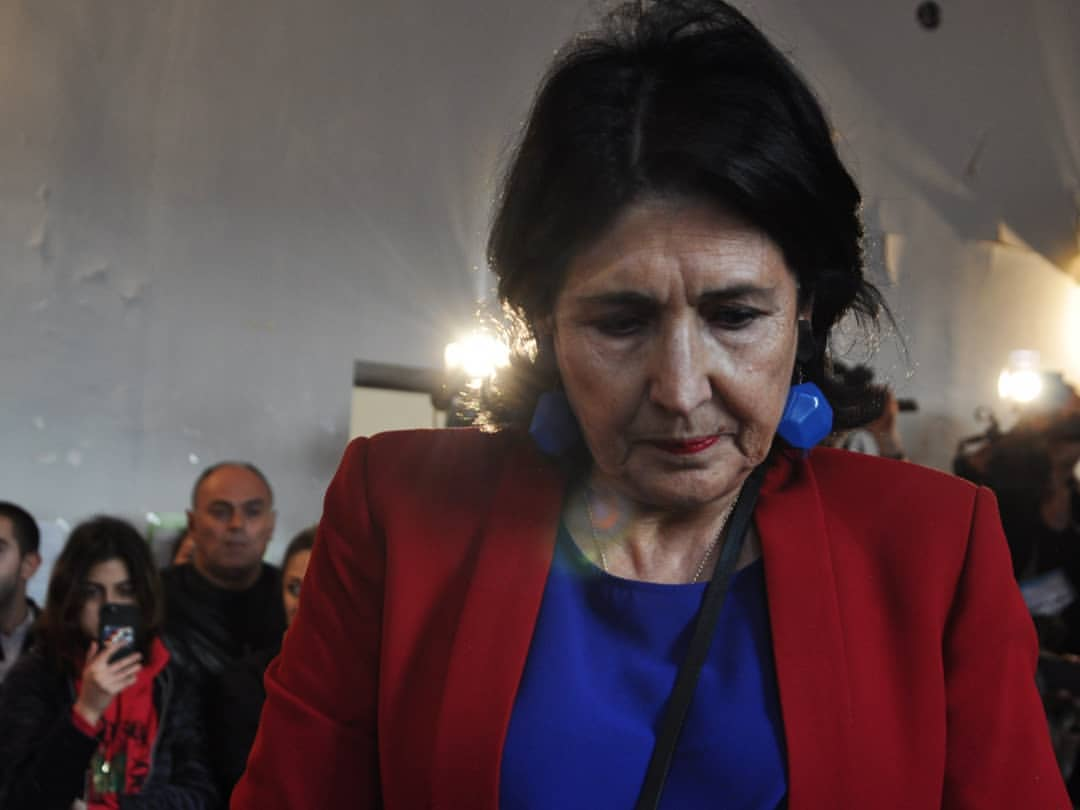
When asked how she felt about the doctors’ donations, Zurabishvili answered ‘it was very much logical’ to her.
[Read more about Zurabishvili’s controversial donors on OC Media: State auditor to examine Zurabishvili donations after donor said he would not vote for her]
Zurabishvili’s 28 November win was celebrated by Georgian Dream officials as one of their owns. But her inability to win outright in the first round has given society a glimpse into how she might react to disappointments — ignoring the public interest — as she refused to talk with journalists for several days after her failure in the first round was announced.
After her win in the runoffs, she thanked journalists for their work and added that sometimes she didn’t answer journalists ‘because it was needed to be so’.
Now she says she has set a new goal — to open a dialogue with those who did not vote for her. And that is a lot of people.






